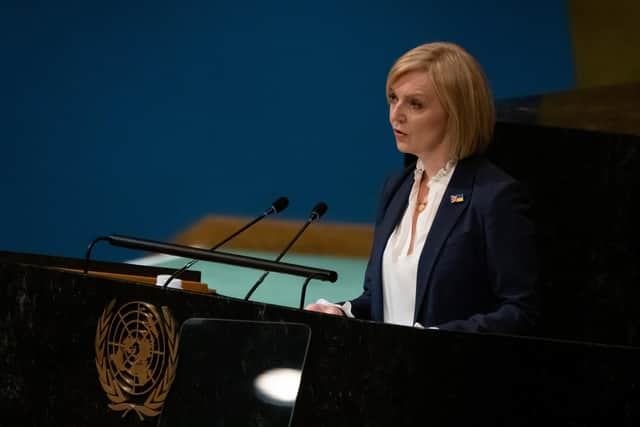Liz Truss defends UK Government decision to lift moratorium on fracking
Business and energy secretary Jacob Rees-Mogg said the impact of Vladimir Putin’s invasion of Ukraine means securing domestic energy supplies was vital as he defended lifting the moratorium on fracking, which has been in place since 2019 after a series of tremors caused by the process.
Mr Rees-Mogg suggested limits on acceptable levels of seismic activity were too restrictive and said the Government was determined to “realise any potential sources of domestic gas”.


Advertisement
Hide AdAdvertisement
Hide AdFracking is the process of hydraulic fracturing, which uses high-pressure liquid to release gas from shale formations.
The 2019 Conservative manifesto pledged not to lift England’s moratorium unless “the science shows categorically it can be done safely”.
Nicola Sturgeon has said there will be no fracking in Scotland, despite Ms Truss's decision to end the ban in England.
A Government-commissioned report by the British Geological Survey (BGS) was inconclusive, saying more data was needed. But despite the lack of scientific progress, Ms Truss’s administration has torn up the manifesto commitment.
Mr Rees-Mogg said: “In light of Putin’s illegal invasion of Ukraine and weaponisation of energy, strengthening our energy security is an absolute priority, and – as the Prime Minister said – we are going to ensure the UK is a net energy exporter by 2040.
“To get there we will need to explore all avenues available to us through solar, wind, oil and gas production, so it’s right that we’ve lifted the pause to realise any potential sources of domestic gas.”
The Department for Business, Energy and Industrial Strategy (BEIS) said lifting the ban meant future applications would be considered “where there is local support”.
Developers will need to have the necessary licences, permissions and consents in place before they can commence operations.
Advertisement
Hide AdAdvertisement
Hide AdBEIS said the BGS review “recognised that we have limited current understanding of UK geology and onshore shale resources, and the challenges of modelling geological activity in relatively complex geology sometimes found in UK shale locations”.
The Government argued limited understanding should not be a barrier to fracking, but instead a reason to drill more wells to gather further data.
A BEIS statement said: “It is clear that we need more sites drilled in order to gather better data and improve the evidence base, and we are aware that some developers are keen to assist with this process.
“Lifting the pause on shale gas extraction will enable drilling to gather this further data, building an understanding of UK shale gas resources and how we can safely carry out shale gas extraction in the UK where there is local support.”
Ms Truss insisted she would not authorise “anything that carries a risk”, but “I’m clear that energy security is vital”.
Comments
Want to join the conversation? Please or to comment on this article.
